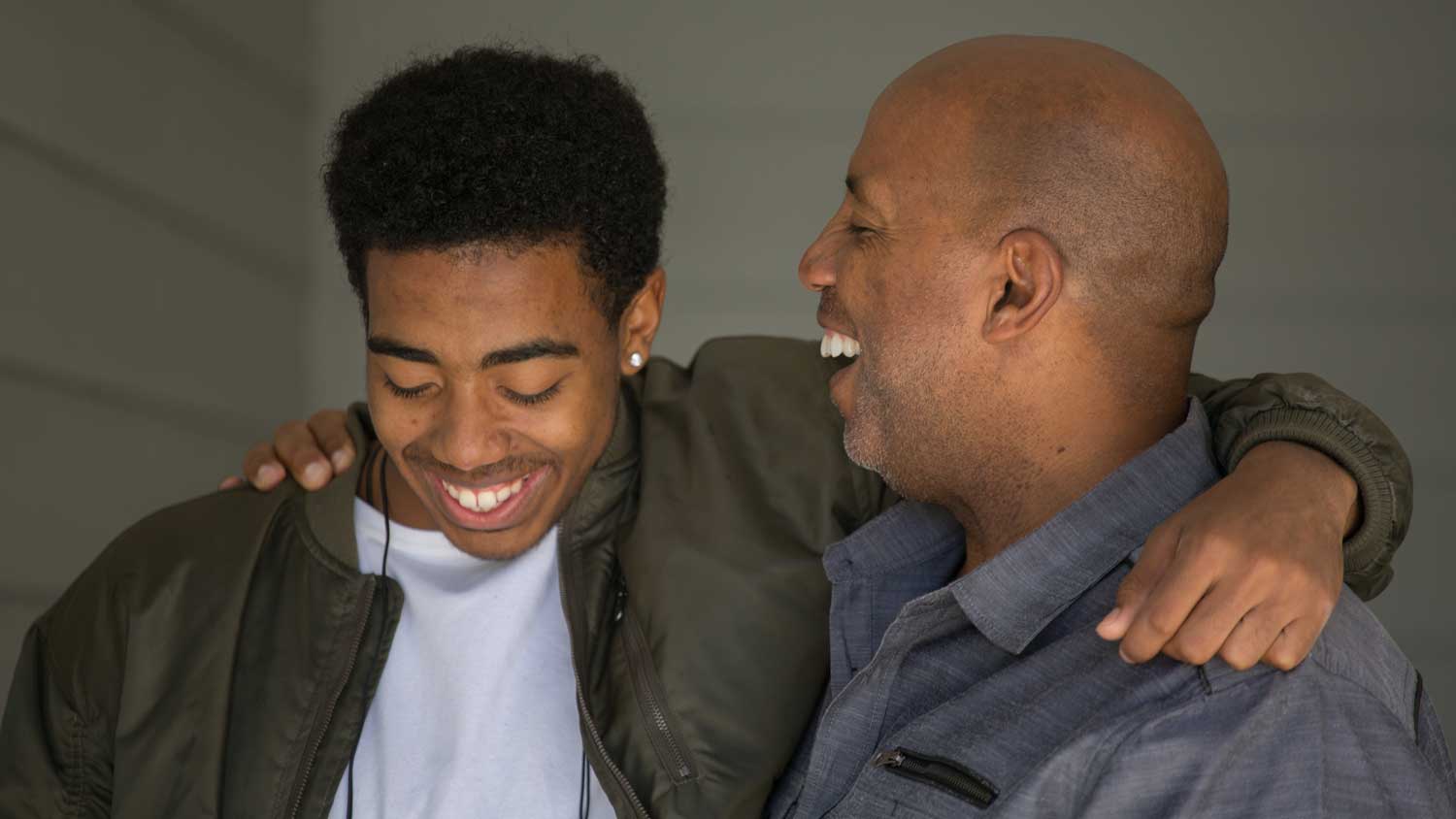By Hanley Foundation Prevention Specialist Caleb Akers
Through many years of research and education, parents are becoming more aware of the crucial part they play regarding how their child thinks about drugs and alcohol. Parents are gifted with power in their homes to communicate with their children and to help mold the attitudes and belief systems of their children regarding drug and alcohol use. Many parents underutilize this power in their homes and, as a result, are more likely to see their child experiment with different drugs and alcohol from an early age (Sawyer et al., 2018). Various risk factors affect whether a child will use drugs or not, such as genetics, family, and peer influences, as well as a broader social context. One important factor associated with lower levels of drug use among children is basic communication between a parent and their child.
Having open dialogues with your children and keeping the lines of communication open is at the front line of prevention efforts in the home.
Children who hear negative feedback about drug and alcohol use are half as likely to engage in these activities (Miller-Day, 2008). Additionally, parents who clearly disapprove of drug and alcohol use to their children report lower levels of substance use among their children. Many research studies conclude that parents who disapprove of these activities have effectively deterred use until much later in life, if at all.
Many adolescents who actively use drugs report that they use because of a lack of parental input.
Basically, parents who aren’t talking to their kids about drugs, or what the expectations regarding drug and alcohol use are for the family, will cause a chain reaction in which their children are left to their own devices to do whatever they want. These attitudes tend to be antisocial and may lead children down a destructive path of substance abuse and dependency.
It’s not enough to just communicate with your children.
Instead, make the communication clear and consistent with anti-drug norms to discourage the experimentation of drugs and alcohol for adolescents. Whether parents take responsibility for the “drug talk” or not, their child will hear it. Either they will listen to their friends at school, who are not just educating them on drugs and alcohol but also pressuring them to try drugs, or they will hear it from their parents.
However, what should a parent who currently smokes, uses illegal substances, or drinks in excess say to their child?
The first thing any parent in that situation should do before speaking with their child is to quit or find recovery treatment if needed.
When talking about drugs and alcohol, a child will not take their parent seriously if their parent is using. Yet if a child sees their parent quit, it could unconsciously communicate to the child that quitting is easy. The discussion is already challenging as children often don’t understand the nature of addiction and the costs involved mentally, emotionally, relationally, and even physically.
Additionally, it is difficult for children to understand when they are being told one thing and shown another.
The popular phrase is to “practice what you preach.” If a parent is going to speak to their child about the dangers of early drug and alcohol use, that parent needs to set a positive example through their behavior. If this isn’t done, the message gets quickly distorted, and the child is the one who ultimately pays the price. (Johnston et al., 2015).
Addiction is a family disease, which could be prevented by parents communicating the dangers and risk factors with their children.
Parents who have open dialogues with their children set them up for success much more than those who don’t. No one said that talking with their children about using drugs and alcohol and the dangers involved was an easy task, but it is not as difficult as many would perceive. Parents don’t have to have a Ph.D. in substance abuse counseling or any formal education in childhood education to communicate with their kids about the dangers associated with using drugs and alcohol. They only need to be committed to the cause of prevention and willing to do whatever is necessary, even if it means having uncomfortable conversations. Frequent conversations do wonders for the overall health of the child, but one-time conversations have the opposite effect. It isn’t enough to only talk once about drug use and expect that to be enough. Sadly, many parents won’t go near the subject at all, which makes their children up to 50 percent more likely to engage in drug use.
References:
Johnston, R., Hearn, L., Cross, D., Thomas, L. T., & Bell, S. (2015). Parent voices guide
smoking intervention development. Health Education, 115(5), 455-469. http://dx.doi.org/10.1108/HE-03-2014-0024
Miller-Day, M. (2008). Talking to youth about drugs: What do late adolescents say about parental strategies? Family Relations, 57(1), 1-12. http://dx.doi.org/10.1111/j.1741-3729.2007.00478.x
Sawyer, A., Coleman, L., Cooke, R., Hodgson, L., & Sherriff, N. (2018). Understanding
conversations about alcohol between parents and their 15–17-year old’s: a qualitative study. BMC Public Health, 18. http://dx.doi.org/10.1186/s12889-018-5525-3



